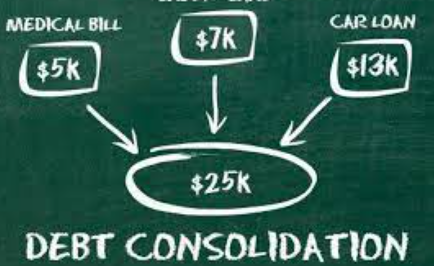What Is Debt Consolidation Loans for Medical Bills?

Medical bills can be an enormous financial burden, especially when you have to deal with unexpected medical emergencies. Even with a good health insurance plan, you may still be left with significant out-of-pocket expenses, which can pile up over time. In some cases, people may turn to credit cards or personal loans to cover their medical expenses, resulting in multiple debts with high-interest rates. This is where such loans come in handy. In this article, they will discuss what such loans for medical bills are and how they work.
What is a Debt Consolidation Loan?
A debt consolidation loan is a type of loan that combines multiple debts into a single, manageable loan with a lower interest rate. Instead of paying multiple creditors, you make a single monthly payment to your lender.
Such loans are available from banks, credit unions, and online lenders. The interest rates and terms may vary depending on the lender and your creditworthiness. Lantern by SoFi experts says, “Simplify your finances.”
How Do Debt Consolidation Loans for Medical Bills Work?
Such loans for medical bills work in the same way as other such loans. You apply for a loan that is large enough to cover all your medical bills and any other outstanding debts you have.
Once approved, you use the loan proceeds to pay off your medical bills and other debts. From then on, you only have to make a single monthly payment to your lender at a lower interest rate than you were paying before.
The Benefits of Debt Consolidation Loans for Medical Bills
Such loans for medical bills have several benefits, including:
Lower interest rates: Medical bills can come with high-interest rates, especially if you have to use credit cards to pay for them. Such loans typically come with lower interest rates, saving you money on interest charges over time.
Simplified payments: Instead of juggling multiple bills and due dates, such loans allow you to make a single monthly payment to your lender, making it easier to manage your finances.
Improved credit score: If you have high credit card balances, it can negatively affect your credit score. Such loans can help you pay off your credit card debt and improve your credit score over time.
The Drawbacks of Debt Consolidation Loans for Medical Bills
While such loans have several benefits here, some may have better options. Here are some potential drawbacks to consider:
High fees: Some such loans may have high fees, such as origination fees or prepayment penalties. Be sure to read the fine print and compare offers from different lenders.
Extended repayment period: While a lower interest rate can save you money, extending your repayment period may result in paying more interest over the life of the loan.
Risk of default: If you have poor credit or are already struggling to make ends meet, taking out a such loan may put you at risk of defaulting on the loan, which can negatively affect your credit score.
Such loans for medical bills can be a useful tool for managing your finances and controlling your medical debt. They can provide lower interest rates, simplified payments, and peace of mind. However, weighing the benefits and drawbacks is important as choosing a loan that works for your unique financial situation. Be sure to compare offers from different lenders, read the fine print, and consult a financial advisor if necessary.




